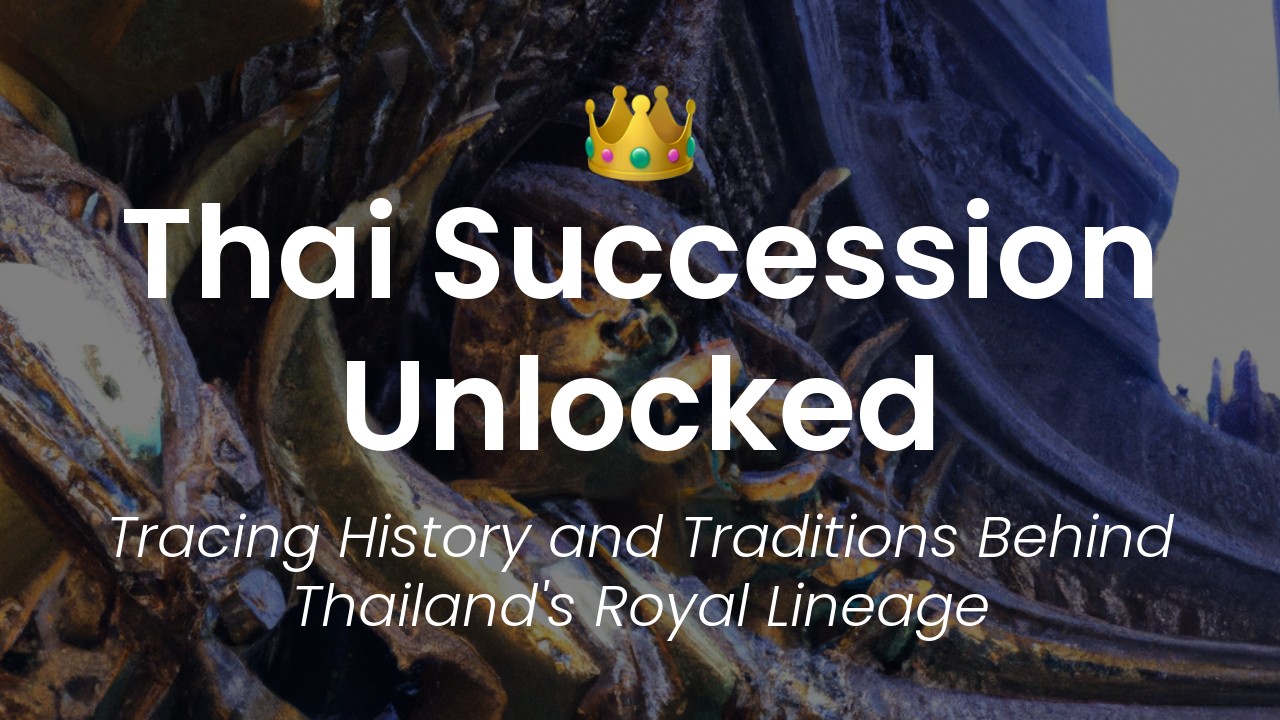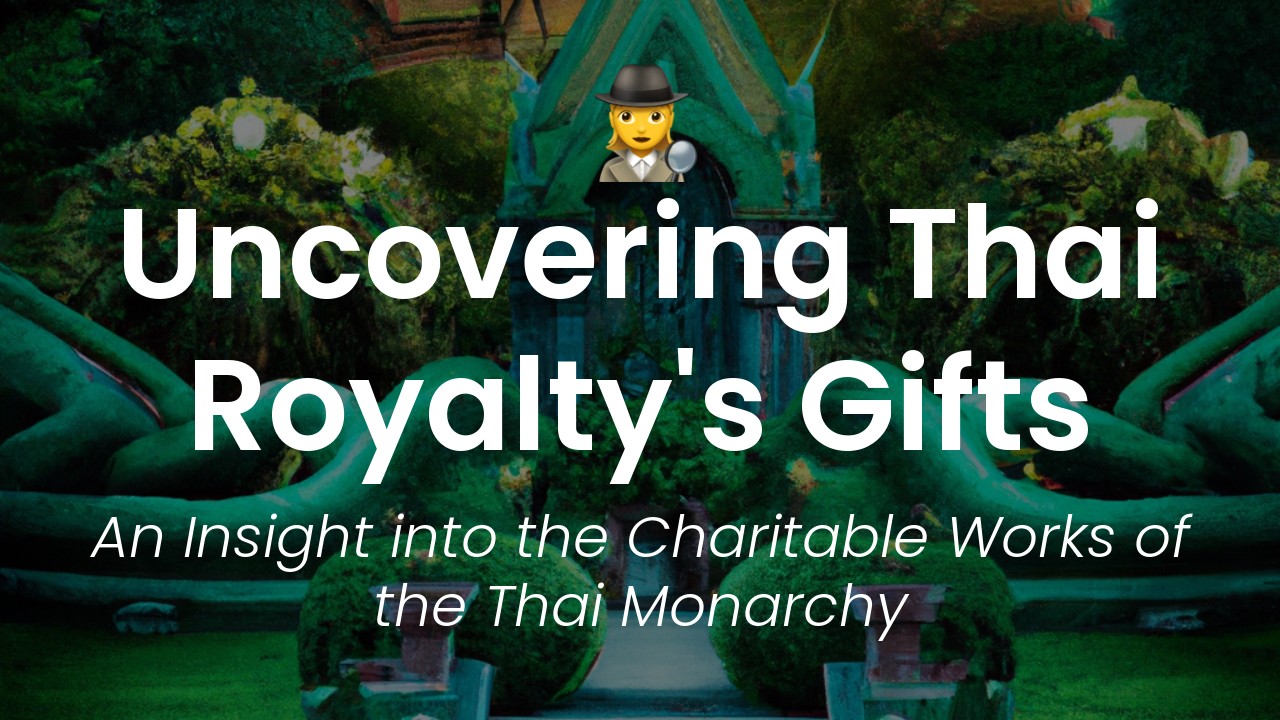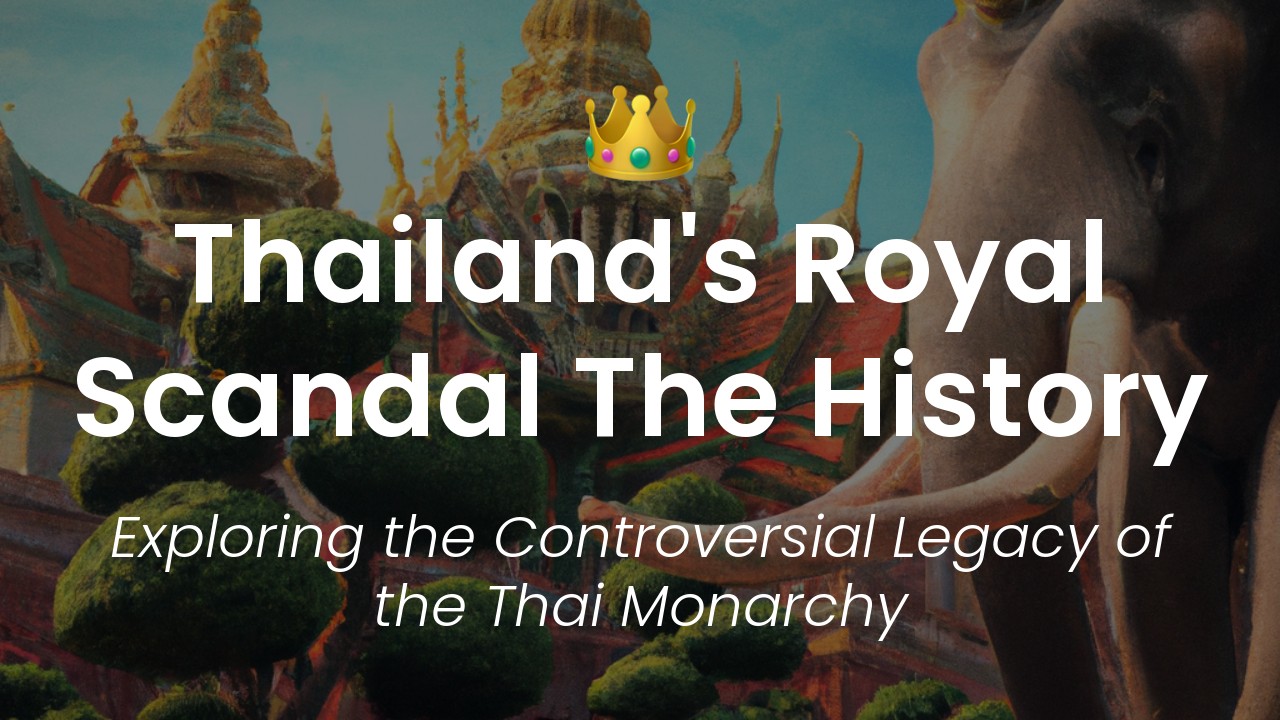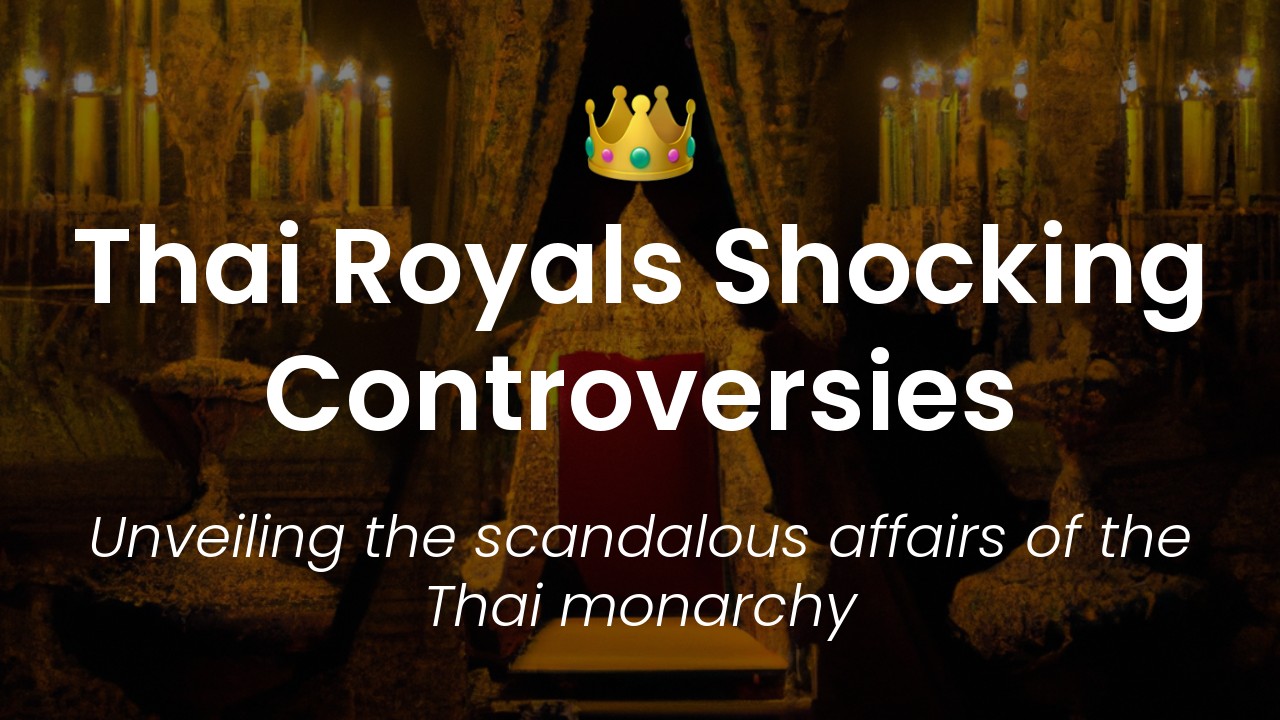As a Thai citizen, I am often fascinated by the intricate workings of the Thai monarchy. The history of the Thai monarchy stretches back hundreds of years, with dynasties and reigns that have left a lasting impact on the country. One topic that has intrigued me in particular is the process of Thai royal succession.
For many non-Thais, the topic of Thai royal succession is shrouded in mystery. There are countless rumors, speculations, and misunderstandings about the process, which can make it difficult to understand the true history and significance of the Thai monarchy. That's why I've decided to take it upon myself to unlock the secrets of Thai royal succession.
My journey to understanding Thai royal succession began by exploring the history of the Thai monarchy itself. I delved into the early reigns of prominent Thai kings, such as King Rama V and King Rama IX, who are often considered to be among the country's most important figures. As I learned more about these figures and the various dynasties throughout Thai history, I began to see how the process of Thai royal succession has evolved over time.
In upcoming articles, I'll share the insights and perspectives that I've gained through my research on the topic of Thai royal succession. I'll explore the rules, traditions, and customs that have guided the process throughout history, while also diving into some of the more notable examples of Thai royal succession, including the recent ascension of King Maha Vajiralongkorn. With a better understanding of Thai royal succession, I believe that we can all gain a deeper respect and appreciation for the incredible history of the Thai monarchy.
Brief History of Thai Monarchy
Thai monarchy has a rich and complex history dating back to the 13th century, and throughout that time, the royal family has undergone various changes in power and succession. The monarchy has undergone transformations in the way it operates, including with the formalization of the succession rules. With the latest succession and the changes made to the laws governing it, the Thai monarchy is undergoing a revival in public interest.
Understanding the Thai Constitution
Under the Thai Constitution, the Thai monarchy is the highest power in the land. However, the monarchy is constitutionally limited and operates within certain legal boundaries. For instance, Section 2 of the Constitution declares that Thailand is a democratic country with the king as the head of state.
The constitution also defines the role of the monarchy as one that acts as a symbol of national unity and serves as a mediator between different political factions and classes. The monarch is not involved in policy-making, and the imposition of martial law is only allowed upon the edicts of the Cabinet of Ministers and the consent of the King.
Types of Royal Succession in Thai Law
Thailand has had several types of royal successions throughout its long history. At its early days, the kingdom was largely undeveloped, and a great deal of discretion was granted to local governors. In some cases, this led to the formation of more extensive local polities.
Most of these polities had some degree of centralization, but they were far from being complete or sustained. Around the 13th century, Sukhothai emerged as the primary center of power in Thailand, and its rulers slowly extended their control over the entire region known as Siam. The ensuing four centuries saw the formation of an increasingly centralized state in Siam.
The Importance of the Monarchy in Thai Culture
The monarchy plays a significant role in Thai culture, and the Thai people view the King as both a symbol of the unity of the nation and as a fatherly figure. The monarch's powers are also enshrined in many parts of Thai society; for example, the police swear loyalty to the King, soldiers are given royal honorifics when they leave the army, and many public events include images of the monarchy.
This cultural significance gives the monarchy an almost sacred role in the country, and it is why the successions in Thailand's royal family are so important. The transfer of power is not only a political event; it is also an occasion for the reaffirmation of cultural values.
Controversies Surrounding Recent Successions
Recent successions in the Thai monarchy have been controversial due to the changing social and political attitudes in the country. The death of King Bhumibol Adulyadej in 2016 marked the end of an era that spanned several decades, and the repercussions of his passing are still being felt in Thai politics and society.
The crown prince, Maha Vajiralongkorn, succeeded the late King with much public scrutiny. Criticism emerged from certain areas of society, casting doubts upon his ability to serve as king. Many critics pointed out the prince's lavish lifestyle, which contrasted with the austere character of his father.
The Role of the Privy Council in Succession
The Privy Council has played a crucial part in the Thai monarchy's succession practices since the first constitution in 1932, which formalized the process of succession. The council serves as a kind of intermediary organization, with its members occupying important positions of power and status within the Thai political establishment. The Privy Council advises the King on many matters related to governance, including legal and constitutional matters, and succession planning.
The council also serves as a buffer between the monarchy and the many competing interests in Thai society, and it is not intended to have any wider executive powers. Its role is advisory, but its members' status and influence are significant enough to make it an essential part of Thailand's political infrastructure.
Looking Forward: Future Successions and Changes to the Law
Thai society is in a time of rapid change, and the monarchy is not immune to these changes. The Thai government is currently in the process of revising legal and constitutional provisions regarding the monarchy, including succession law.
The changes are taking place in an atmosphere of high public interest, with proponents and critics alike calling for change and reform. However, it remains to be seen how these changes will impact the future of the Thai monarchy, and how they will affect the country's political landscape.
In conclusion, Thai monarchy and succession laws remain a crucial component of the country's political landscape, culture, and society. While recent successions have been embroiled in controversy and challenged by the changes in Thai social values, the role of the monarchy and the line of succession remain integral to Thailand's identity. The Thai people's devotion to their king and his family is just as strong as ever, and this devotion will undoubtedly ensure the monarchy's ongoing importance and influence in Thailand's future.







